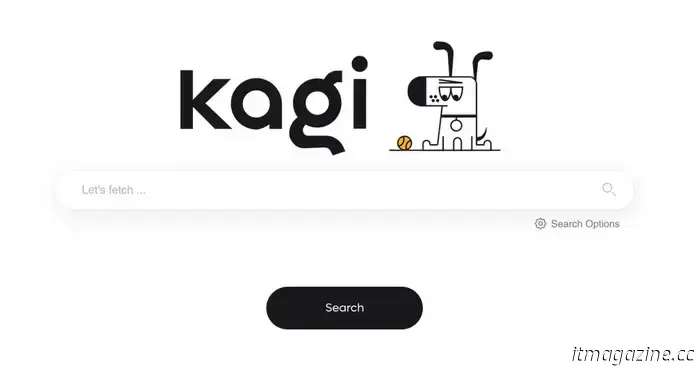
I used a paid search engine for a week, and I don't believe I'll return to it.
A few months ago, after deciding to move away from Google Search, I started looking for new products to experiment with. Interestingly, it took me some time to realize that there are paid search engines available, but once I discovered them, I was quickly intrigued.
I chose to test one out for a week to gauge my experience — I had already significantly improved my search results by switching my default engine to Qwant, so I wanted to see the added advantages offered by a paid service.
Kagi — an AI-driven paid search engine
The search engine I opted to try is called Kagi, a Public Benefit Corporation located in the United States. Its proposition is simple: instead of allowing Google to gather all of your data and provide you with unsatisfactory results, pay a subscription fee to receive the outcomes you desire. Here’s how the company puts it:
The name, which translates to “key” in Japanese, begins with a “k,” yet the company’s logo displays a “g.” If this appears to be a direct challenge to Google, it very well might be.
So, what do you receive for your payment with Kagi? The first aspect to highlight is privacy. Google accumulates a vast amount of data from users to monetize it — since Google isn't directly paid by users, it seeks alternative ways to ensure it profits from its services.
Conversely, with Kagi, your payment directly supports the service, which translates to purchasing privacy. Upon visiting the Kagi homepage, a small info box indicates that “Your searches are always private and not saved.” Furthermore, Kagi does not track which results you select — you'll need to revert to Google if you wish for your clicks to influence Google Trends data.
While Google operates within a vast ecosystem of paid search results, advertisements, search engine optimization, and ranking competition, Kagi functions differently. It serves simply as a tool to aid in finding what you seek online — no more, no less.
This approach is not just beneficial for your privacy; it also means that when you use Google, its priority is to display an abundance of content that aids in generating revenue for itself and its advertising partners. In contrast, Kagi focuses on delivering the service you've already paid for — in other words, it strives to present the best results for your inquiries. Kagi has numerous features to assist with this, so here are a few of my favorites.
Kagi Lenses
“Lenses” is a feature that enables you to tailor your searches according to the results you wish to see. There are several predefined options — for instance, you can opt to see only results from online discussions and forums, or restrict your search to PDF files.
The standout aspect of this feature is the ability to create your own lenses. If you have certain preferred websites you want to prioritize, you can include up to ten in a custom Lens and search exclusively within those sites. Conversely, if there are specific sites you’d like to exclude from your results, you can block up to ten in each Lens.
If you're frustrated with seeing results that don't correspond to your current region, you can also confine your search results to a particular area. This is particularly advantageous for me as I reside in the EU, where purchasing from the United States or Asia often incurs excessive shipping costs. Consequently, it can be quite frustrating when my search engine suggests ten fantastic sites that have just what I want, yet they’re all located outside the EU.
Your Lenses are accessible through a small dropdown box beneath the search bar; simply select the one you wish to use and proceed with your search as usual. Once you've selected a Lens, you can toggle it on or off without reopening the dropdown. Additionally, there’s a manual region selector under the search bar for adjusting the region of individual searches whenever needed. For advanced users, there’s an entire advanced search menu available as well.
To note — if you use Google, you must enter the Advanced Settings menu to change the region of your searches, and there's no search bar, necessitating a scroll to the bottom for options like the U.K. or U.S. Frankly, the region-based search feature on Google doesn’t seem too effective either.
Recently, I wanted to recommend a favorite Korean skincare product to someone in the U.K. and aimed to link to a local store they could easily purchase from. With Kagi, I found results from all the major British retailers, as well as Amazon U.K. In contrast, when I turned to Google for the same query, I got Amazon U.K., but the rest of the first page was populated with online-only stores I had never heard of. Moreover, the sponsored shopping results at the top still reflected my region, not the U.K.
I’m not suggesting that the stores Google suggested were illegitimate, but if you’re in the U.K. and you want to shop at Boots or Superdrug, these would be the easiest options. It’s likely simpler in the U







Other articles
 George Lucas states that there is a valid reason for the way Yoda speaks.
The creator of Star Wars recently talked about the little green character during an anniversary screening of The Empire Strikes Back.
George Lucas states that there is a valid reason for the way Yoda speaks.
The creator of Star Wars recently talked about the little green character during an anniversary screening of The Empire Strikes Back.
 Google Fi was already my top choice for eSIM while traveling, and now it’s even improved.
Google Fi was already my preferred eSIM for travel, but Google has just introduced a range of enhancements that make it even more appealing. Here's why!
Google Fi was already my top choice for eSIM while traveling, and now it’s even improved.
Google Fi was already my preferred eSIM for travel, but Google has just introduced a range of enhancements that make it even more appealing. Here's why!
 If you enjoyed Havoc, check out these three action films on Netflix.
Tom Hardy's Havoc is the newest original film available for streaming on Netflix. If you enjoyed Havoc, consider watching these three action films.
If you enjoyed Havoc, check out these three action films on Netflix.
Tom Hardy's Havoc is the newest original film available for streaming on Netflix. If you enjoyed Havoc, consider watching these three action films.
 Google's decision to discontinue certain Nest thermostats serves as a cautionary message for all smart home users.
Google has announced a termination update for its first and second generation Nest Learning Thermostats.
Google's decision to discontinue certain Nest thermostats serves as a cautionary message for all smart home users.
Google has announced a termination update for its first and second generation Nest Learning Thermostats.
 China's Pony.ai, a competitor to Waymo, has reduced the cost of its self-driving technology stack by 70%.
According to CEO James Peng, the latest generation of robotaxis from Pony.ai are priced 20%-30% less than those from its US competitor Alphabet’s self-driving division, Waymo.
China's Pony.ai, a competitor to Waymo, has reduced the cost of its self-driving technology stack by 70%.
According to CEO James Peng, the latest generation of robotaxis from Pony.ai are priced 20%-30% less than those from its US competitor Alphabet’s self-driving division, Waymo.
 iPhone 17e: our expectations
This is what we anticipate from the iPhone 17e.
iPhone 17e: our expectations
This is what we anticipate from the iPhone 17e.
I used a paid search engine for a week, and I don't believe I'll return to it.
I experimented with a paid search engine to explore options beyond Google, and it turned out to be quite impressive.
